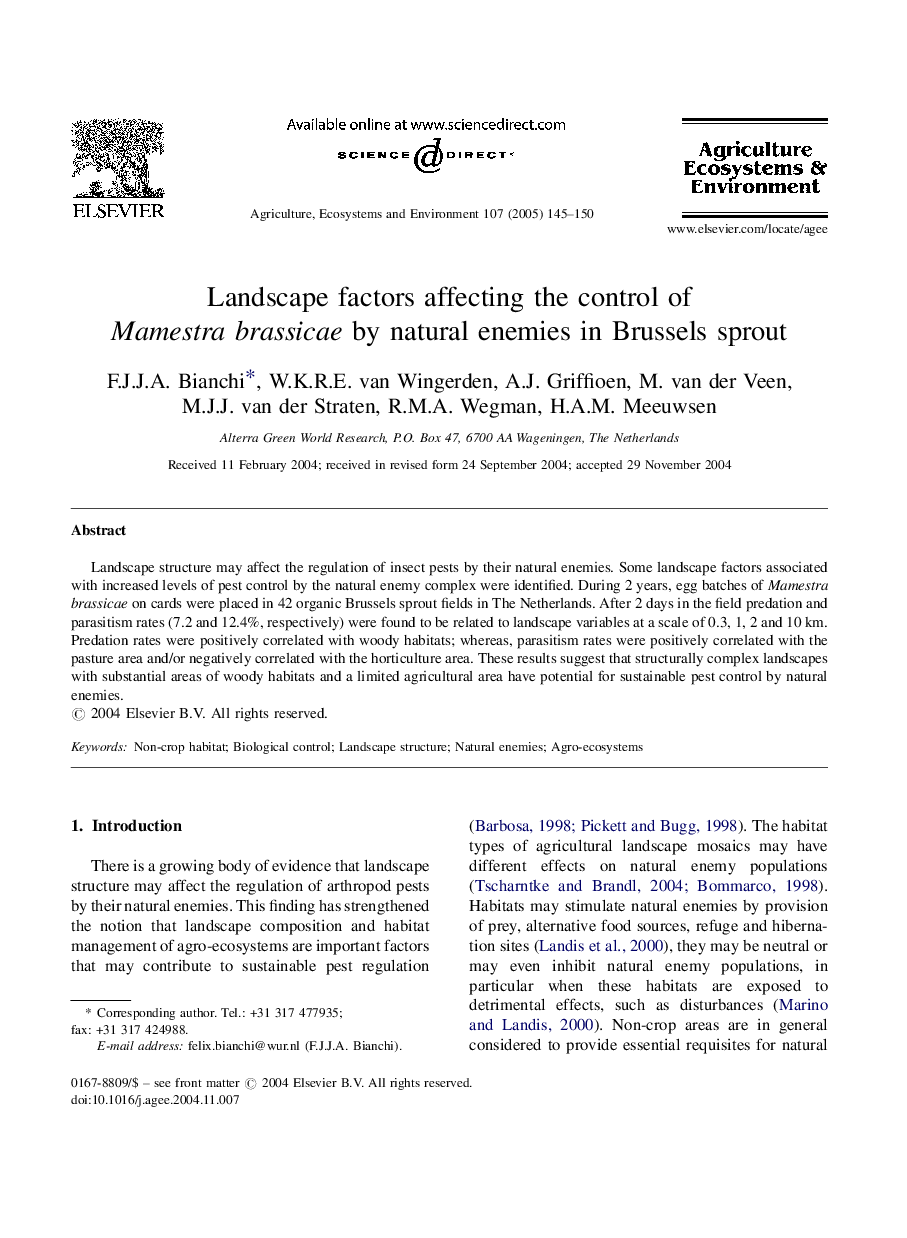| Article ID | Journal | Published Year | Pages | File Type |
|---|---|---|---|---|
| 8970789 | Agriculture, Ecosystems & Environment | 2005 | 6 Pages |
Abstract
Landscape structure may affect the regulation of insect pests by their natural enemies. Some landscape factors associated with increased levels of pest control by the natural enemy complex were identified. During 2 years, egg batches of Mamestra brassicae on cards were placed in 42 organic Brussels sprout fields in The Netherlands. After 2 days in the field predation and parasitism rates (7.2 and 12.4%, respectively) were found to be related to landscape variables at a scale of 0.3, 1, 2 and 10Â km. Predation rates were positively correlated with woody habitats; whereas, parasitism rates were positively correlated with the pasture area and/or negatively correlated with the horticulture area. These results suggest that structurally complex landscapes with substantial areas of woody habitats and a limited agricultural area have potential for sustainable pest control by natural enemies.
Related Topics
Life Sciences
Agricultural and Biological Sciences
Agronomy and Crop Science
Authors
F.J.J.A. Bianchi, W.K.R.E. van Wingerden, A.J. Griffioen, M. van der Veen, M.J.J. van der Straten, R.M.A. Wegman, H.A.M. Meeuwsen,
